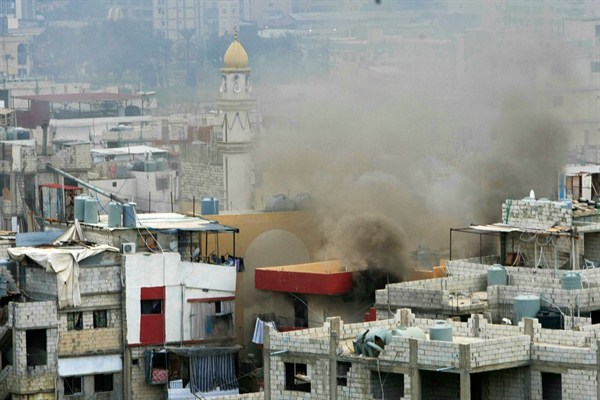On Thursday, Palestinian security forces entered the Ain el-Hilweh camp for Palestinian refugees in southern Lebanon, putting an end to a week of clashes involving Sunni Islamist militants that killed an estimated seven and injured dozens. The violence broke out last Friday, when a Palestinian security force met resistance from fighters affiliated with Bilal Badr—a radical Islamist with a strong foothold in Ain el-Hilweh—while attempting to deploy throughout the camp. In response, Fatah, the party that has controlled the Palestinian Authority since 1993, launched an offensive targeting Badr’s positions.
Jihadi groups aren’t a new phenomenon in Palestinian camps in Lebanon, which largely fall outside of the jurisdiction of Lebanese security forces. In 2007, the Nahr el-Bared camp in northern Lebanon was leveled during a conflict between the Lebanese army and the jihadi group Fateh al-Islam, with violence spilling over to surrounding villages. It has yet to be rebuilt.
Yet Ain el-Hilweh, which is the largest and most populous of the 12 camps in Lebanon, has been at the forefront of Fatah’s war on Islamist groups. Its reputation for routine clashes dates back to the 1990s, and less than two years ago—in July 2015—a Fatah general was assassinated in the camp, triggering a state of emergency. Last November, Lebanese authorities started building a wall near the camp, citing the national security threat posed by “fugitive terrorists,” but they quickly halted construction amid pressure from the Palestinian leadership.

